Ask The Best And Brightest: Is Fuel Economy A Luxury Item?

Since my return on Friday from the New York Auto Show, my friends and co-workers have been relentlessly asking me, “What was the big story there?” After I tell them the big story — that I saw Mike Stern play in the Village with some friends and then squired two fabulous ladies around New York until 5:30AM — they ask me to shut up about that and tell them about the car story.
Fair enough. The story this year is fuel economy, just like it was thirty years ago. The difference this time? Fuel economy, like every other crappy thing in this world, from Russian vodka to TAG Heuer watches, has gone upscale.
It’s been a long time since EPA ratings were the biggest part of auto advertisements, but those days are back. Forty miles per gallon is the gateway to respectability. Hyundai debuted yet another 40MPG car — the Accent sedan — in what is becoming a very fuel-economy-centric lineup. Kia showed the Rio. Chevrolet asked the world to wait a year for a 38MPG Malibu while Ford put “41 MPG” in bold letters on the side of its aging-but-still-hot Fusion Hybrid. Volkswagen put big numbers on the side of its cars and crossed its fingers that nobody had seen the price of diesel on their way in to the show. Subaru showed a 36MPG Impreza but made a virtue of the number by noting that it was for an all-wheel-drive vehicle. Let’s not forget the new Prius “family of vehicles”, or the upcoming Toyota/Scion iQ.
We’ve seen this race before, back in 1982 when several manufacturers debuted cars with EPA highway ratings of 50MPG or more. TTAC’s Michael Karesh has done the math and notes that 50MPG on the 1982 EPA highway test is really about 35MPG today, so today’s fuel-economy superstars are actually more efficient that their predecessors. I have to wonder how much of the gap comes from computers that can accurately deliver special fuel maps for EPA testing, but perhaps I’m being cynical.
The difference back then was that fuel economy was sold on a purely economic basis. Perhaps there was a tiny bit of fear about fuel rationing in major cities mixed in with the money pitch, but by and large the selling point of the 50MPG car was cost of operation. The mileage champions — Honda 1300FE Civic, Toyota Starlet, Dodge/Plymouth Miser models — were all cheap cars. They looked cheap, they were cheap inside, and they were cheap to buy. This made perfect sense. If the buyer was concerned about saving ten bucks a week on fuel, he was probably also unwilling to buy a top-of-the-line model of any particular car.
Fast-forward to the 2011 NYIAS, and we see that “Eco” and “SFE” packages are all the rage. You pay more to pay less, dontcha know. Although Hyundai and Kia aren’t charging more for their 40MPG cars, neither have they skimped on interior appointments for the base models of those cars. We already know that the Prius commands a significant premium over the equivalent Corolla, and if you insist on comparing it to a Camry, it still costs more than a base 4cyl Camry does. Let’s not forget that VW’s fast-selling TDI models are four to five grand more expensive than their gas-powered equivalents. Fuel economy is becoming a luxury item.
Some rough math: over 100,000 miles, the 40MPG car saves 833 gallons over the 30MPG car. If fuel reaches $5 a gallon everywhere and stays there, that’s a savings of nearly $4200, but that savings takes a long time to arrive. I’d be surprised if most buyers were doing that math and making their decision based on it; instead, I suspect that social acceptability and personal concerns about appearance of consumption are responsible for the newfound popularity of 40MPG cars. In other words, it’s strictly emotional, which means it can be marketed to, which means it can be sold as a luxury good, which means it will cost more, even if it doesn’t have to.
What say you, TTACers? Would you pay more for “SFE”, “Eco”, “HSD”, or “TDI”? And why do you think everybody else might?

More by Jack Baruth
Latest Car Reviews
Read moreLatest Product Reviews
Read moreRecent Comments
- MaintenanceCosts Thing mentioned in the article: 77 pounds lighter than the standard version!Thing not mentioned in the article: The "lighter" curb weight is 3902 pounds. That is a few pounds heavier than my 2011 335i *convertible*.
- Carson D Printing a trillion dollars every hundred days was not the cause of inflation.
- Carson D The Mercedes-Benz safety car with the Mercedes-Benz-contracted touring car driver picking up the second place Red Bull Honda so the leading McLaren-Mercedes-Benz could retain its lead after pitting was some Roger Penske-caliber shenanigans.
- Fahrvergnugen The only GP we watch - and attend - is SailGP. Feeds a slightly different bunch of adrenaline junkies, though there must be some overlap.
- SCE to AUX Fisker filed for reorganization in Austria - the end is near.https://insideevs.com/news/718875/fisker-reorganization-austria/



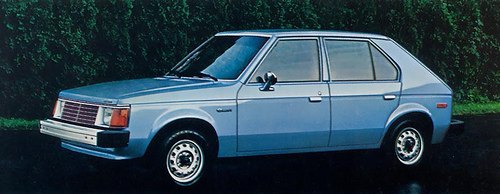















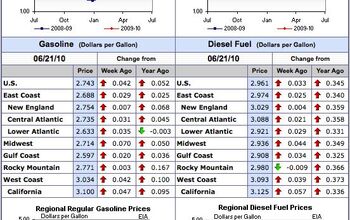
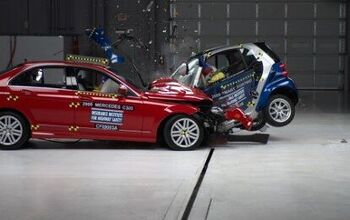
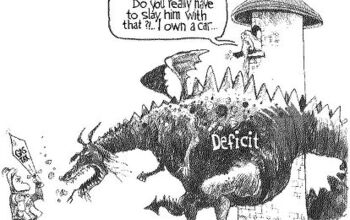
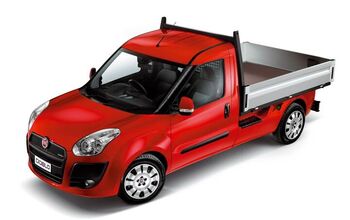
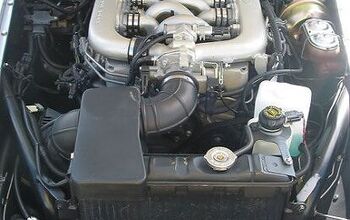










Comments
Join the conversation
I did... bought a 335d and love it!
I looked into cost of converting my vehicle to propane. It's $3,600 Canadian for a V6 engine. Gas here is $5.80 a gallon, donkey p*ss (aka with ethanol) is $5.24. Propane is about 50% of donkey p*ss. So, conversion would pay for itself in about 40 full fill ups.